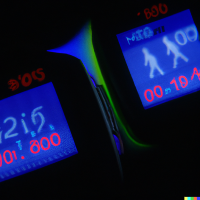Heart Rate Monitor Training - The Karvonen Method

You see, every running pace has its own heart rate zone.
Your heart rate zones can be determined in different ways.
One of the methods is the Karvonen method. The heart rate monitor training zones according to Karvonen are explained in this section.
Martti Karvonen is a Finnish scientist.
He is best known for his method to predict the optimal exercise training heart rate. He developed his "Karvonen Formula".

the difference between the maximum heart rate and the rest heart rate.
E.g. suppose your maximum heart rate is 195. And your rest heart rate is 50. Then your heart rate reserve is 195 - 50 = 145.
Don't know how to establish your maximum heart rate? Click here!
Don't know how to establish your rest heart rate? Click here!
How does Karvonen Use This Heart Rate Reserve to Establish the Heart Rate Monitor Training Zones?
Just like Zoladz, Karvonen identifies heart rate monitor training zones. Each zone represents a certain exercise level. He expresses those heart rate monitor training zones in percentages of the heart rate reserve.Zone 1: 60-70%
Zone 2: 70-75%
Zone 2.5: 75-80%
Zone 3: 80-85%
Zone 4: 85-95%
Zone 1 is for your long, slow runs.
Zone 2 is for your regular easy runs.
Zone 2.5 is a zone that has gotten a little lost in running training theory. You don't see many running books or sites cover it well, but it's actually an important running training zone. It's your steady-state pace.
For more about Zone 1, Zone 2 and Zone 2.5, check out the Base Running page.
Zone 3 is for your tempo runs. Check out the tempo running page for more information.
Zone 4 is for your intervals. Check out the interval running page if you'd like to know a bit more about that.
How Does the Calculation Work?

To establish your heart rate monitor training
zones you do the following:
1. Take your rest heart rate.
2. Then add the percentage of the heart rate reserve as above.
Unclear? Then follow the example below...
So, my maximum heart rate is 195.
My rest heart rate is 50.
My heart rate reserve is 145.
My zone 1 (long slow run, recovery runs) would be
in between:
Low value: 50 + 60 % * 145 = 137 beats per minute
High value: 50 + 70 % * 145 = 151,5 bpm (round to 152 bpm)
My zone 2 (easy runs) would be in between:
Low value: 50 + 70 % * 145 = 151,5 bpm (round to 152 bpm)
High value: 50 + 75 % * 145 = 158,75 bpm
(round to 159 bpm)
My zone 2 1/2 (steady state run) would be in
between:
Low value: 50 + 75 % * 145 = 158,75 bpm (round to 159 bpm)
High value: 50 + 80 % * 145 = 166 bpm
My zone 3 (tempo run) would be in between:
Low value: 50 + 80% * 145 = 166 bpm
High value: 50 + 85% * 145 = 173,25 bpm (round to 173 bpm)
My zone 4 (short repeats) would be in between:
Low value: 50 + 85 % * 145 = 173,25 bpm (round to 173 bpm)
High value: 50 + 95 % * 145 = 187,75 bpm (round to 188 bpm)
Compare these to my values as identified by the
Zoladz heart rate monitor training zone method.
They are pretty close
to each other aren’t they?
The Karvonen Heart Rate Zone Calculator
Now, just sensing that you'd rather not do the above calculations yourself, I have created the below calculator. All you do is enter your maximum heart rate and rest heart rate.
Then click the "click me"-button and there are your heart rate monitor training zones!
Training with a heart rate monitor can really benefit your performance. Especially when you are just starting out with running it is good to have that extra little bit of guidance that helps you determine the right running pace for you.
Further Recommended Reading

In addition to that, the Running Training Section is filled with articles about different types of running workouts.
Home > Heart Rate Monitor Training > The Karvonen Method


